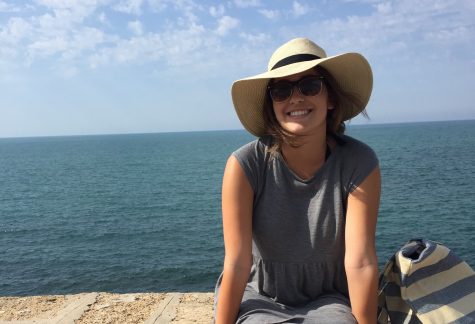The Mesa College Science Technology Engineering and Math lecture series have provided four lectures throughout the semester open for the public to attend. On Thursday, Dec. 1, the series was concluded with a final lecture, titled “Global Climate Change,” which was presented by Alexander Sasha Gershunov. Gershunov specializes in climate, atmospheric, and physical oceanography, and works with the Scripps Institution of Oceanography in La Jolla.
The auditorium quickly filled up as eager audience members filled every seat available. The talk, regarding global warming and overall climate began at 7 p.m., and addressed concerns of the overall increasingly hot climate of the earth.
Gershunov explained the difference between climate and weather, as many people tend to get the two mixed up. Weather occurs as in individual event and is recorded day by day or even hour by hour. His specialty climate, on the other hand, is accumulated overtime which makes it a statistic.
Gershunov shared research that has been done which concludes that the overall global surface temperature has warmed markedly since the 1970s. The year 2015 contributes largely to this great spike in global warming, as the audience learned it was the warmest year globally recorded. The heat increase was mostly found in high latitude continents.
“Climate models have predicted this certain fingerprint of warming,” shared Gershunov. This is useful in terms of knowing what active steps to take to reduce the warming around the world. “We trust climate models because they were able to predict global warming before it ever occurred,” said Gershunov as he continued by expressing that these accurate predictions can assist researchers in knowing what to expect when it comes to future climate.
Following the hottest recorded overall year, 2016 was also alarming when June temperatures saw slightly warmer trends all over the world, especially in certain locations that managed to break records.
These increasingly changing climate rates are affecting natural life, such as trees. Tress are dying due to the “bark beetle infestation,” said Gershunov. Along with the bark beetle, trees are dying off, especially in California, due to their extreme water deficiency from the state wide drought.
Further evidence that was shared with the audience about this change of climate was regarding the infamous El Niño storm that occurs. Gershunov acknowledged the fact that “typically we get wetter winters during El Niño, [however] last El Niño, we did not.”
Gershunov was enthusiastic about his topic, educating the audience about the potential aftermaths of this climate change.
Though the lecture series has ended for the semester, each presenter doubles as a professor at a college in the area, and provides insightful lectures for their students. The recorded lectures can be found online through the Mesa College website.

